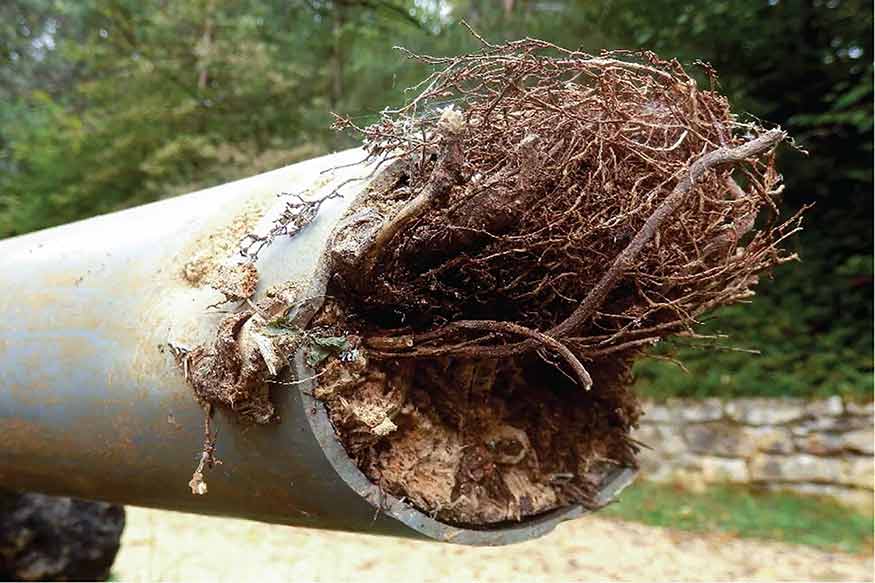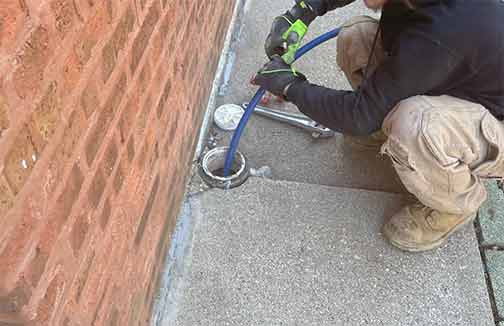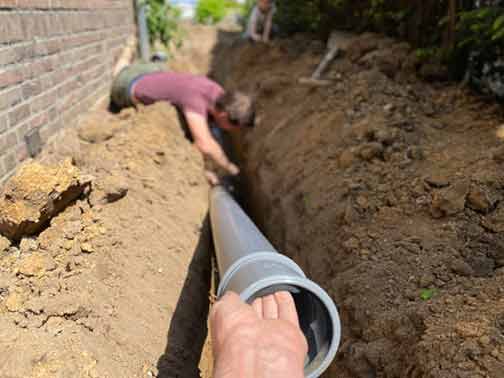Identifying Sewer Line Problems
Dealing with sewer problems is a part of homeownership. It is often not a pleasant experience, but it is necessary to keep everything running smoothly. Problems with the sewer line can lead to backups and leaks, causing damage to your home and unpleasant smells. If you are experiencing any symptoms of sewer line problems, it is important to identify them and take action as soon as possible. Here we will discuss some of the signs of sewer line problems, their causes, and the solutions.
Signs of Sewer Line Problems
There are several signs that indicate a problem with your sewer line. Some of the most common symptoms are:
1. Slow draining sinks or toilets
If your sinks or toilets are draining slowly, it could be a sign of a problem with your sewer line. It could indicate that there is a clog or blockage somewhere in the line. If this is the case, you may need to call a plumber to assess the situation and address the issue.
2. Foul odors
Foul odors around your home, especially in the basement or near drains, can be a sign of a sewer problem. This can occur due to gas build-up, which occurs when there is a blockage in the sewer line, causing waste to accumulate. A professional plumber can help locate the problem and provide a solution.
3. Gurgling sounds from drains
Gurgling sounds from your drains, especially after flushing the toilet or running water, is another indication of a sewer problem. This could mean that there is a clog in the line that is causing air to be trapped and creating these sounds.
4. Sewage backups
If sewage backups occur in your yard, or drains come out of your shower or sink, this is a sign of a severe sewer problem. You should call an emergency plumber immediately, as this could cause significant damage to your property and pose a health risk.

Tree roots are attracted to the moisture in sewer lines and can infiltrate the pipes through small cracks or joints.
Causes of Sewer Line Problems
Sewer line problems can occur due to several reasons. Some of the most common causes are:
Pipe corrosion
Pipe corrosion is a common issue, particularly in older homes. Pipes can corrode over time, leading to leaks and possible blockages.
Tree roots intrusion
Tree roots are attracted to the moisture in sewer lines and can infiltrate the pipes through small cracks or joints. If left unchecked, tree roots can expand and cause significant damage to the sewer line, leading to blockages and backups.
Aging pipes
As pipes age, they can become brittle and prone to cracking. This can lead to leaks and blockages, which can cause significant damage.
Solutions for Sewer Line Problems
The solution to any sewer line problem will depend on the cause and severity of the issue. Some of the most common solutions are:
Hydro jetting
Hydro jetting is a method used to clear clogs in sewer lines. It uses high-pressure water jets to flush out any debris or buildup and is an effective way of maintaining your sewer lines.

Regular maintenance of your sewer line can help prevent issues from occurring and catch any problems before they become severe.
Chemical treatments
Chemical treatments can help remove any clogs or blockages in sewer lines. However, these treatments are not recommended for all situations and can cause damage to the pipes if used incorrectly.
Sewer line repair or replacement
If the damage to your sewer line is severe, you may need to have the sewer line replaced. This is usually the most expensive option, but it is necessary for severe clogs, backups, and other issues.
Regular maintenance
Regular maintenance of your sewer line can help prevent issues from occurring and catch any problems before they become severe. This can include camera inspections of your sewer line and cleanings performed by a professional plumber.
Sewer line problems can be a cause of concern for homeowners, but they can be addressed with the help of a professional plumber. Identifying the signs of sewer line problems and addressing them promptly is essential to avoid further damage and ensure the proper functioning of your home’s plumbing. Implementing regular maintenance and addressing issues promptly can save you time and money in the long run.
